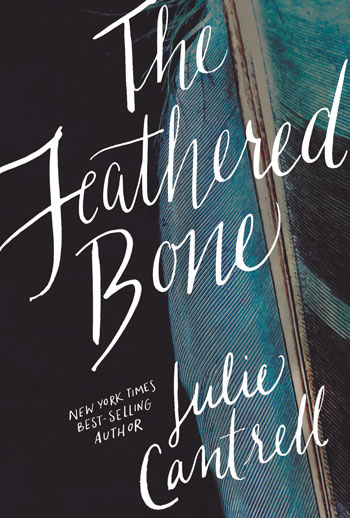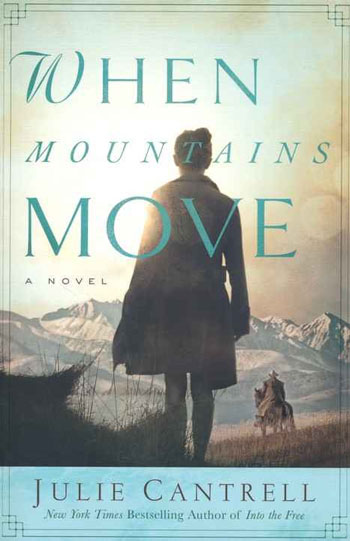Julie Cantrell
Oxford Mom and New York Times Best-Selling Author
MCL: I want to know how you chose this vocation.
 Julie: From a very early age, I loved to write. I would write poems and songs and journal entries about all that was going on in my life. When I was in about fourth grade, my mother gave me a dark blue velvet journal with a silver unicorn inscribed on the front. It was beautiful and it held mysteries that were coded Top Secret. I look back now and laugh at some of the silly things I wrote during those tween and teen years, but I also wrote about darker things I observed. Again and again, I would try to understand why good people would sometimes do things that hurt the people who loved them. Writing became a tool for me to process the world around me.
Julie: From a very early age, I loved to write. I would write poems and songs and journal entries about all that was going on in my life. When I was in about fourth grade, my mother gave me a dark blue velvet journal with a silver unicorn inscribed on the front. It was beautiful and it held mysteries that were coded Top Secret. I look back now and laugh at some of the silly things I wrote during those tween and teen years, but I also wrote about darker things I observed. Again and again, I would try to understand why good people would sometimes do things that hurt the people who loved them. Writing became a tool for me to process the world around me.
Years later, I was a certified speech-language pathologist who had stepped away from my career in order to stay home as a mother and wife. On a dare, I entered a poem through an organization called Mothers of Preschoolers, Intl., a non-profit ministry that aimed to support mothers of young children. My poem was selected as the winner of their annual contest. In addition to publishing the poem, they wanted me to write content for their publications. Soon, I became contributing editor to MOMSense Magazine. That one opportunity launched a freelance writing career that continues today.
MCL: Why fiction?
Julie: My freshman year in high school, I had a wonderfully encouraging teacher. Mrs. Purcell was the first person that told me I was good at writing, and in doing so she shaped my entire life. Like many high school literature teachers in the south, she assigned us to read To Kill a Mockingbird by Harper Lee, but she also asked us to write a journal as if we were one of the characters from the book.
 Of course I chose to write from Scout’s point of view, and for the first time I was no longer writing from my own brain. Instead, I entered the universe through the lens of Scout, and the whole world shifted for me.
Of course I chose to write from Scout’s point of view, and for the first time I was no longer writing from my own brain. Instead, I entered the universe through the lens of Scout, and the whole world shifted for me.
From that moment on, instead of writing about the people I was observing, I started writing from their perspectives. In many ways, fiction writing taught me to have an even deeper level of compassion and empathy for the people in my life. It’s one thing to write about a man who kicks his daughter’s dog or hits his wife, but it’s another thing to write as if you ARE that man. At fourteen, I was using fiction to help me understand why people do the things we do, and that’s still what I am trying to accomplish today as a novelist.
MCL: How you develop your characters?
Julie: I love people. I also love stories. And I love to discover the lifetime of stories that shape a person’s soul. I don’t write about real people or real events, but I am inspired by the infinite wonder of this world. In my opinion, everything is part of God’s creation, and therefore, everything is magical, mysterious, and meaningful. Every piece of life. It’s all sacred.
I try to move through space with open eyes, open ears, and an open mind, and then I take the sights and sounds and emotions I capture and let them brew in my brain for a while. Only then do I dare try to put ink to page, hoping to stir up something that will inspire others to experience life in a new way, one that hopefully encourages us to love God and one another with open hearts.

Julie: Research is my favorite part of writing. I love to learn, and I love to meet people. Getting out to interview others about their life’s work, culture, or experiences never feels like a job to me. In fact, I would love to write documentaries someday because I truly do love celebrating extraordinary people who live ordinary lives. I just find people to be absolutely fascinating.
When writing Into the Free and When Mountains Move, I spent a lot of time with the Mississippi Band of Choctaw Indians down in the Philadelphia area. I also worked with the Lauderdale County Department of Archives and History. I met with many generous locals who shared regional folklore and others who consider themselves to be Romany Travelers (aka Gypsies). I did a ton of research on the early history of the American Rodeo as well as details about homesteads in the Colorado Rockies. I worked with ranchers, rodeo competitors, horse trainers, and saddle makers, as well as historians and naturalists in both Mississippi and Colorado, hoping to build a fictional world that was both believable and realistic.
My third novel, The Feathered Bone, is more contemporary. Even though the story takes place in my hometown, Walker, Louisiana, and the timeframe was more current, I conducted extensive research to make sure I was not overlooking details I might take for granted because I was so comfortable with the environment.
Researching Hurricane Katrina was far more intense than I expected. Going back ten years after the storm, I saw the traumatic events unfold with fresh eyes. I watched every clip I could find on YouTube, I read archives and books and direct reports about the storm’s effects, and I interviewed people who had been directly involved in the events. It was emotional to become so immersed in the tragedies. I also worked with various levels of law enforcement professionals in Louisiana and survivors of the sex trade. Human trafficking ministries opened their doors to me, and I met with people of all ages who had been on all sides of this dark underbelly of society. Some days I had to step away from it all and give my soul a break. It’s heavy stuff, but it’s happening all around us, and we cannot close our eyes and pretend it all away. Souls are hurting, and somebody needs to pay attention and ask the hard questions and find a way to remind these beautiful people that they too are loved by God. And that they are indeed worthy of that love.

